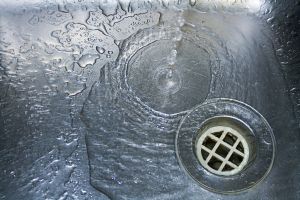Your Guide to Protecting and Preserving our Water
In any community where the groundwater is used as a source of drinking water, protecting aquifers and wells becomes an important goal. While many people may consider this to be a municipal water company problem, protecting and preserving our water actually begins in our own homes and businesses. There are a number of simple things which can be done around the home to help preserve and protect drinking water quality and contamination of other water resources in the area.
Consider What You Put Down the Drain:
One of the best ways to protect and preserve water quality is to give a little thought to what you are putting down your drain. Your sink drains and toilet are not garbage cans and should not be used to get rid of any trash. For example, many people dispose of unused pharmaceutical products down the drain. However, water treatment plants do not tend have the ability to remove pharmaceutical contaminants from wastewater. This can mean that drugs can end up in lakes and water sources.
You should also avoid pouring grease, oil and other household waste items down the drain. Not only can these items clog up your pipes and cause damage in your home, but they can also block sewer and waste water lines. This can allow sewage and gray water to flood out of the drains and runoff into other water sources.
You should also consider what cleaning products you use that can be flushed down the drains. Ideally, you should use an environmentally safe cleaning product such as lemon juice, vinegar or baking soda, which will not allow potentially toxic chemicals to enter the water system. Water treatment plants often lack the capacity to remove many household chemicals from the water. In fact, the EPA only requires municipal water treatment plants to test for 90 chemicals in drinking water supplies, so potentially harmful chemicals may even go undetected.
Consider the Impact of Your Pets and Gardening:
Nitrate and bacteria are some of the most common forms of water contaminants. While this may seem like an environmental issue, some of your activities such as gardening and disposing of your pet waste can have a great impact on the levels of these contaminants. Pet waste can contain potentially harmful bacteria, which can cause harm if it is allowed to enter the water system. This means that you should take steps to ensure that you dispose of your pet waste carefully and responsibly. Additionally, lawn fertilizer and other gardening products often contain nitrate. Using these types of products can potentially allow nitrate contaminated runoff to enter the water system. However, it is possible to choose nitrate free gardening products, which will not contaminate the groundwater. If nitrate is needed to replenish your soil, you should use these products carefully to prevent harmful effects. You should also aim to maintain the foliage in your garden to reduce the risk of soil erosion. Soil in water runoff can allow sediment and contaminants to be washed into waterways and cause contamination.
About The Author:
Greg Scott is President of Valparaiso based Miracle/EcoWater Systems, the premier water conditioning company in Northwest Indiana serving the Lake, Porter and LaPorte County areas. A 3rd generation water treatment professional, Greg grew up in the family owned business started by his grandfather in the late fifties. He has made water treatment his life and under his direction and high-standards, the company’s water treatment experience, knowledge, and products are unrivaled in region.
